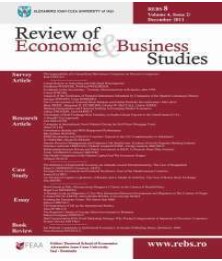ISSUES OF ORGANIZATIONAL CULTURE IN ROMANIA – A CASE STUDY
ISSUES OF ORGANIZATIONAL CULTURE IN ROMANIA – A CASE STUDY
Author(s): Dumitru Zaiţ, Adriana ZaitSubject(s): Business Economy / Management, Management and complex organizations
Published by: Editura Universităţii »Alexandru Ioan Cuza« din Iaşi
Keywords: Organizational culture; Romania;
Summary/Abstract: The present paper analyzes, through a case study, the organizational culture of a typical Romanian company from the textile industry. The company resulted from the privatization process, being a successful example in its field. The initial, socialist enterprise from which the analyzed company was created, had a long history prior to 1989; thus, although the newly created company has about 20 years of evolution, actually, the mother company from which it was privatized has more than a decade of tradition. In order to collect data, we used two methods: direct, non-participative observation, together with a sociological survey based on a semi-structured interviewing technique. The interviews were conducted with the top managers - the strategic management and the managers from the human resources department, sales and purchasing departments. The observation and the interviews were undertaken during the period 2011-2012. For the analysis of the collected data, we used a systemization method and a theme-based organization of answers (specific to content analysis). The identification and analysis criteria for the typologies of the organizational culture were those used by Sonnenfeld (1988) and Quinn (1991). A protocol was established for all stages, including exploration, description of the situation, data analysis, typological classification of the organizational culture and interpretation. We conclude that the analyzed company has a mixed personality and hesitates between rigorous control and permanent adaptation, between the real and ideal image, between independent action and the need to wait for directions and reassuring control, a rather general characteristic of the Romanian culture. Although the managers seem to be in favor of a permanent and free adaptation to the threatening environment, control is always used as a precautionary measure. Moreover, the strategy of the company seems to privilege the maintaining of its structure and procedures and not the adaptation to the environment. The company is placed in different categories, for both models, at stated level comparing to the actual one, oscillating between Club and Baseball (for the Sonnenfeld typology) and between Hierarchical and Innovative (for the Quinn typology of organizational culture).
Journal: Review of Economic and Business Studies (REBS)
- Issue Year: 2016
- Issue No: 18
- Page Range: 253-279
- Page Count: 27
- Language: English

